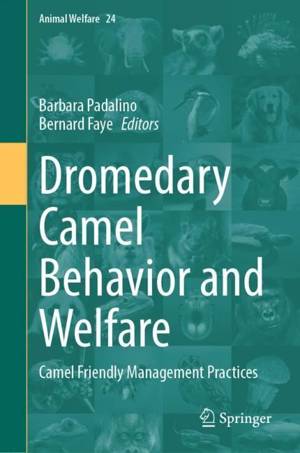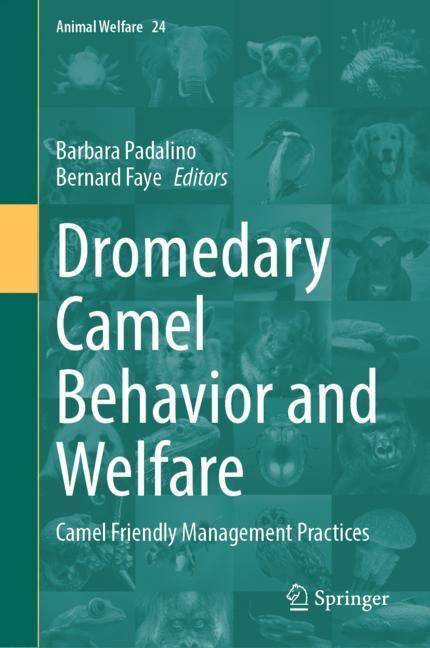
Bedankt voor het vertrouwen het afgelopen jaar! Om jou te bedanken bieden we GRATIS verzending (in België) aan op alles gedurende de hele maand januari.
- Afhalen na 1 uur in een winkel met voorraad
- Gratis thuislevering in België
- Ruim aanbod met 7 miljoen producten
Bedankt voor het vertrouwen het afgelopen jaar! Om jou te bedanken bieden we GRATIS verzending (in België) aan op alles gedurende de hele maand januari.
- Afhalen na 1 uur in een winkel met voorraad
- Gratis thuislevering in België
- Ruim aanbod met 7 miljoen producten
Zoeken
Dromedary Camel Behavior and Welfare
Camel Friendly Management Practices
€ 126,95
+ 253 punten
Omschrijving
This volume gives a comprehensive review on dromedary camel handling and management by respecting its welfare, which is a global first. Beyond that, it provides a new welfare assessment tool.Expert authors lay the groundwork for understanding the animals by covering domestication, camels´ behavioral repertoire and needs, as well as dromedary camel genetics and coping with production systems. Then, the reader is equipped with the latest expertise on good management practices in camel farms, including transport, feeding, housing from racing to dairy systems, and health and hygiene. Moreover, the impact of innovative reproduction techniques and, finally, slaughter are taken into account.
Camels, long confined to desert areas and kept extensively, have recently faced changes in husbandry systems and their environment. Intensification and specialization for milk, meat or sport purpose, as well as new geographic conditions have had significant impact on camel welfare.
This book is a must-read for all camel industry members, breeders, veterinarians, and researchers, who want to practice camel breeding and management while safeguarding the behavioral needs and welfare of these amazing animals.
Camels, long confined to desert areas and kept extensively, have recently faced changes in husbandry systems and their environment. Intensification and specialization for milk, meat or sport purpose, as well as new geographic conditions have had significant impact on camel welfare.
This book is a must-read for all camel industry members, breeders, veterinarians, and researchers, who want to practice camel breeding and management while safeguarding the behavioral needs and welfare of these amazing animals.
Specificaties
Betrokkenen
- Uitgeverij:
Inhoud
- Aantal bladzijden:
- 250
- Taal:
- Engels
- Reeks:
- Reeksnummer:
- nr. 24
Eigenschappen
- Productcode (EAN):
- 9783031485992
- Verschijningsdatum:
- 21/01/2024
- Uitvoering:
- Hardcover
- Formaat:
- Genaaid
- Afmetingen:
- 156 mm x 234 mm
- Gewicht:
- 557 g

Alleen bij Standaard Boekhandel
+ 253 punten op je klantenkaart van Standaard Boekhandel
Beoordelingen
We publiceren alleen reviews die voldoen aan de voorwaarden voor reviews. Bekijk onze voorwaarden voor reviews.











